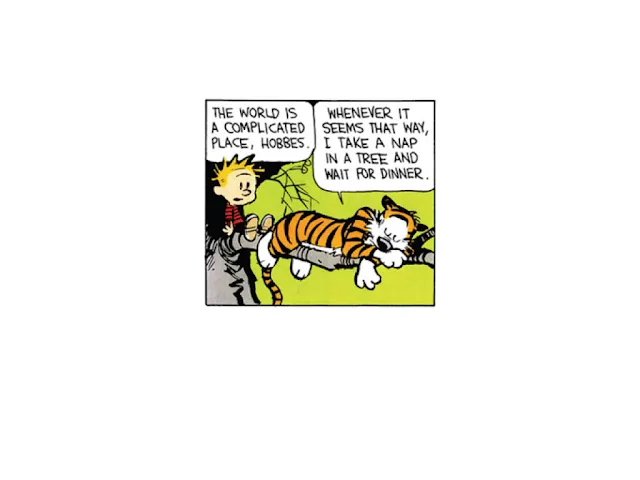Confusing world...
In The Better Angels of Our Nature (2011), Steven Pinker argued that violence has declined significantly over time due to factors like state authority, trade, literacy, and reason. He believes continued peace depends on empathy and rationality - though not on religion or moral absolutes. And we will soon reach there, because we have better angels inside us than what religion or morality tells us!
Francis Fukuyama’s The End of History and the Last Man argued that the end of the Cold War marked the culmination of ideological evolution, with liberal democracy emerging as the final and most stable form of government. In a later work, Liberalism and Its Discontents, he reflects on the challenges facing liberalism today, noting how it has been undermined by neoliberalism on the right and identity politics on the left - leading to societal divisions and threats to democracy.
In less than two decades, the little angels seem to have been replaced by little devils, democracy seems to be fading away, and we are falling back on human demigods as our leaders.
These maps say it all. And the daily news too!
Conflicts across the globe...
The IDPs...
Moving on to technology and human potential, in his book Homo Deus: A Brief History of Tomorrow (2015), Yuval Noah Harari examined the future of humanity in light of rapid advancements in artificial intelligence and biotechnology. With famine, disease, and war largely under control, Harari suggests that humanity’s next goals will be the pursuit of immortality, happiness, and god-like abilities. He explores the rise of "techno-humanism," where humans seek to enhance themselves through genetic engineering and cybernetic technology—potentially leading to a new "useless class" and a redefinition of what it means to be human.
The Techno-Optimist Manifesto (2023) by Marc Andreessen asserts that unrestricted technological advancement is essential for solving humanity’s challenges and ensuring a better future. It celebrates technology as a driver of wealth, happiness, and progress, advocating for radical competence and the rejection of resentment. The manifesto highlights free markets, human intelligence, and artificial intelligence as key tools for innovation, liberation, and human flourishing.
Though there are many beneficial effects of AI on mental health, the prevalence of subjectively perceived AI dependence in adolescents seems to be indicating an upward trend. In one study: 17.14%, 19%, and 24.19% in three cohorts included in the study. Will these have more deleterious effects—we need to wait and see. There are studies now emerging on losing critical thinking - “ChatGPT May Be Eroding Critical Thinking Skills” https://time.com/7295195/ai-chatgpt-google-learning-school/
Of course—we are all happy because GDP and financial indicators as projected to us look as if “all is well", or our nations are "Great Again".
But what is not told to us is…
These create much confusion in my mind—a cognitive dissonance; we can live with two polarising perspectives and still be happy with it!
I blame it all on politicians and leaders, the big industries, and even religious leaders for the religion -based wars and violence. They are the problem! If only these people would change (most of them are older than me too, and so unlikely to change at that age ☹ though the world is younger than ever).
But then I realise, I am no different. The leaders blame all this on the past, others around them. I too do the same.
I am reminded of what Aleksandr Solzhenitsyn wrote in The Gulag Archipelago 1918–1956,
“The line separating good and evil passes not through states, nor between classes, nor between political parties either—but right through every human heart—and through all human hearts. This line shifts. Inside us, it oscillates with the years. And even within hearts overwhelmed by evil, one small bridgehead of good is retained.”
And Jacques Ellul, in The Technological Society, reminds us,
“If man—if each one of us—abdicates his responsibilities with regard to values; if each one of us limits himself to leading a trivial existence in a technological civilization, with greater adaptation and increasing success as his sole objectives; if we do not even consider the possibility of making a stand against these determinants, then everything will happen as I have described it, and the determinants will be transformed into inevitabilities.”
So what do I do? I am reminded of the great commandment which I grew up with:
“Love the Lord your God with all your passion and prayer and intelligence. This is the most important, the first on any list. But there is a second to set alongside it: 'Love others as well as you love yourself.’” I am good at loving myself.
Maybe the answer is not out there, but here within me—Love God and love my neighbours! And try to make a difference here and now where I am…Not alone but in and with the community I am placed...
But it is more comfortable to be like Hobbs...













Comments
Post a Comment